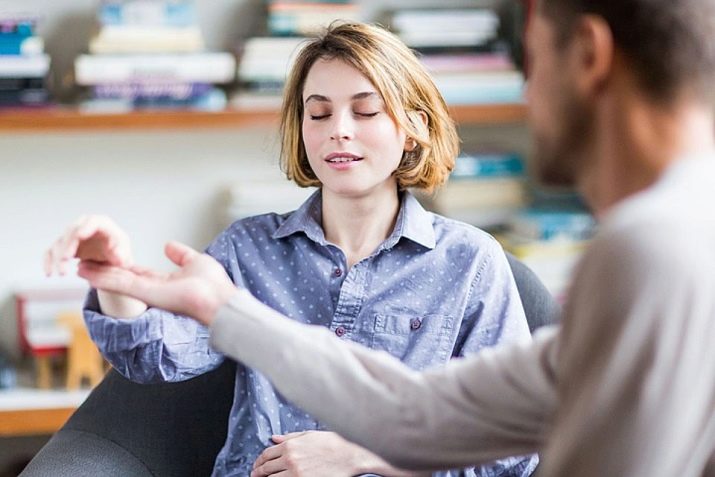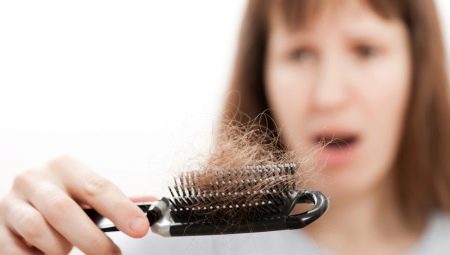Fear of human hair is considered one of the most common phobias in the modern world. It is likely that each of us becomes unpleasant when hair gets on clothes or food, but obsessive fear significantly reduces the quality of life. From this article you will learn about the features of hair phobia, possible causes of its development, symptoms and treatment methods.
What it is?
Fear of hair is called trichophobia. This is a very common disorder that women usually suffer, but it can also occur in men and children. Within reasonable limits, there is a certain benefit from aversion to hair, this indicates a person's cleanliness.
However, in the case of phobia, this is uncontrolled fear, horror and panic, accompanied by somatic symptoms. Phobia brings the patient only harm.
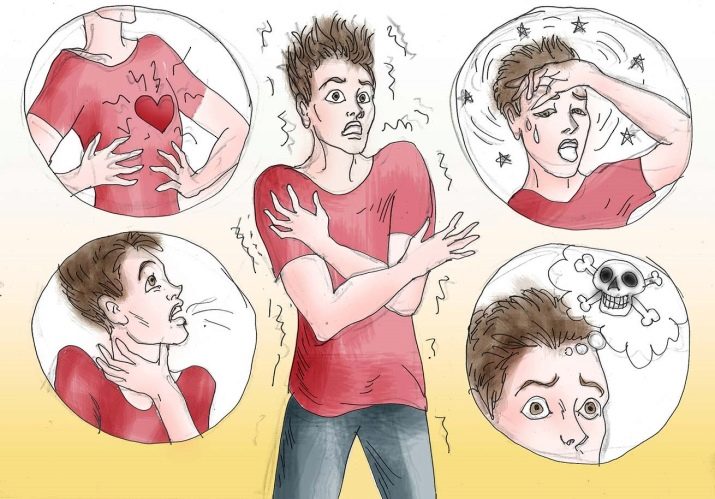
Some experts believe that a person is afraid of hair loss, because they are associated with something dead, dead part of the body. Others think that phobia is due to increased attention to hygiene in general. However, in the vast majority of cases, this fear is unconscious - a person suffering from a phobia cannot explain to himself why his hair pushes him to the extreme extent.
Causes of occurrence
Treatment of any kind of phobia begins with the identification of its causes. If you try to get rid of fear only, without thinking about what caused it, the phobia may return or even worsen. The causes of phobias can be internal and even hereditary. - Certain character traits make us predisposed to certain fears.Moreover, often causes and external ones - our life experience and the situations in which we find ourselves, can provoke the development of hair phobia.
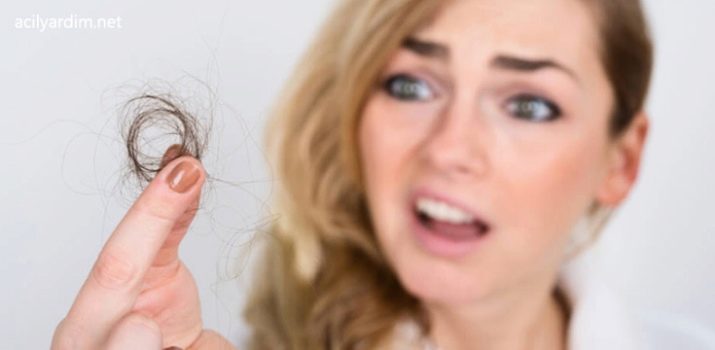
Psychologists identify many factors that, under unfavorable circumstances, can lead to the development of such a disorder in a person as trichophobia. Consider the most common of them.
- Hereditary factor One can never deny even mental illnesses such as phobias. Experts are sure that if there was a person among the relatives who suffered from trichophobia, then there is a significant chance that his relatives will also be exposed to the same phobia. Thus, fear can be transmitted genetically. However, it is worth noting that such a pattern will not necessarily be. If your relative had trichophobia, you can avoid this disorder - heredity gives you only a predisposition, and the rest depends on other factors.
- Childhood injury - This is the most common reason that psychologists tend to consider primarily when working with a phobia in a patient. The fact is that it is children who are very impressionable, susceptible to external influence and have a rich imagination for all kinds of associations, including negative ones. If a person experienced strong fear in childhood, he usually does not forget - even if an adult cannot remember the details, these impressions are very well postponed in the subconscious. And this phenomenon very often becomes the cause of the development of phobia. In this case, the goal of the psychologist is through a conversation with the patient and various techniques to find the real reason that provoked fear in early childhood.
- Negative life experience also very often associated with the development of phobias. Already in adulthood, a person could survive a certain kind of shock that was associated with hair. It is in this case, if the shock was negative, the risk of a sudden occurrence of phobia in an adult is very likely. It is not easy to get rid of it, because it is associated with real fear, which a person remembers very well, but experienced psychologists and psychotherapists successfully solve this problem.
- Imposed fear - This is an interesting reason that they began to actively talk about just a few years ago. It consists in the fact that a person does not really suffer from a disorder, but has a lot of contact with people prone to trichophobia. Seeing what irritation and panic a friend’s hair causes, a person begins to behave in the same way, and in the future he may develop a real phobia. Everyone can become infected with phobia in unfavorable circumstances, however, people who succumb to other people's influence and dependence on other people are most susceptible to this.
- Stress state also often provokes a phobia. In this case, the mental resources of a person are depleted - psychologists are well aware that stress negatively affects the entire body and health in general. In a depressed state, all kinds of fears arise that oppress a person even more. If you do not normalize mental health, getting out of this kind of phobia is very difficult.
- Other mental disorders, such as neurosis and psychosis, often become the basis for the appearance of trichophobia. The fact is that in such conditions the human psyche is extremely vulnerable and susceptible - it is easily irritated and easily amenable to panic. At the same time, reactions to the stimulus become a habit - if a person has several times felt an aversion to hair in the context of a neurosis, phobias often develop from this.
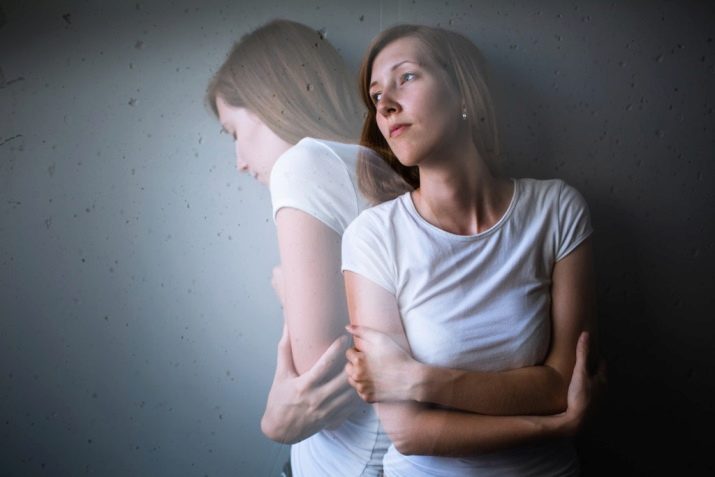
The causes of trichophobia can be extremely many and they are largely individual. Therefore, the fight against phobia involves long work. It is best to do this with the help of a professional who will offer the most effective treatment for a particular patient.
Symptoms
Each person suffers a phobia in different ways, however, a number of common symptoms that distinguish this disease can be distinguished. Below are the most common ones.
- Panic attacks, uncontrolled gestures and facial expressions often distinguish phobia from ordinary fear. It is as if a person loses touch with reality and cannot control himself.
- Sometimes dizziness appears and it’s hard for a person to stand on his feet. He will try to sit down, lean on, take someone by the hand.
- Palpitations and increased pressure - Another sign. With him in conjunction are excessive sweating, uneven breathing, trembling in the voice.
- Cramps in the lower or upper limbs also may indicate the presence of a real phobia in a person. This is due to muscle strain - from fear, a person strains muscles as much as possible, and the body does not withstand the load.
- Fainting is possible at times. when looking at body hair or in food. This symptom does not even depend on the strength of the phobia, but on the whole on the person’s tendency to fainting.
- Nausea, vomiting, and diarrhea are also symptoms that characterize trichophobia. They make the life of the patient very uncomfortable, since they can manifest themselves at any chance encounter with lost hair.
At the initial stages of the development of a phobia, the symptoms are often purely psychological in nature - this is obsessive fear, panic, disgust, severe stress, which is accompanied by the release of adrenaline into the blood. Therefore, breathing goes astray and the heart speeds up. At the same time, in the later stages, physiological symptoms such as cramps and upset gastrointestinal tract make themselves felt more and more.
In addition, it should be borne in mind that frequent stresses provoke a lot of chronic somatic diseases, which, at first glance, may not be associated with phobia, for example, heart diseases and skin problems.
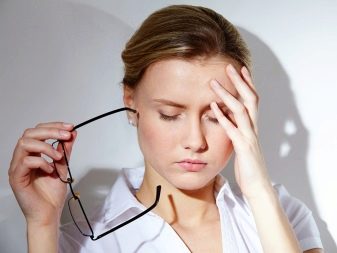

Ways to get rid of a phobia
There are many ways to deal with phobia, but you must do this. If the disease is left to chance, it will only progress and more and more reduce the quality of life of the patient. Depending on the degree of phobia development, you can choose different ways to deal with the disorder - try to solve the problem yourself or consult a specialist.
Self-control of phobia will be effective at the very beginning of the development of the disease. You need to have great willpower, be aware of your fear and enlist the support of loved ones. To fight phobia on your own experts recommend the following measures.
- Breathing exercises can help calm anxiety and learn to better control oneself. Give breathing exercises 15 minutes a day. In a stressful situation, try to pull yourself together and begin to breathe deeply - this can help not to panic. Over time, peace will become a habit, and you can easily control yourself.
- Yoga and meditation - Also useful practices aimed at calm and relaxation. You can find yourself a good coach or do it yourself, but try to do all the exercises correctly and thoughtfully.
- Try natural remedies for soothing, for example, herbal teas help a lot. Make a habit of drinking peppermint, lemon balm or valerian every night - they will not work instantly, but after a few weeks you will notice that your health will improve.
- Sport also very important for stress management. The fact is that in the process of experiencing negative emotions, a lot of adrenaline is thrown into the blood. To relieve this stress will help intense physical activity. In addition, during exercise endorphin is produced, which is responsible for a good mood and positive.
- Proper nutrition - Another important point. Our body is a chemical factory and it works much better if all the substances come in sufficient quantities. General health will also contribute to stress management.


Medication method
Sometimes psychotherapists prescribe medications to combat phobia. This usually occurs in advanced cases when it is not possible to cope with the disease on your own. It can be different antidepressants, sedatives, as well as hormonal tablets to normalize hormonal levels. All these medicines should be used only under the supervision of a doctor and on his recommendation.
Do not try to choose the pills yourself - you can seriously harm your mental health.
Psychotherapy
If you consult a specialist at an earlier stage in the development of phobia, you probably will not need pills. To begin with, a competent psychotherapist will try to determine the true cause of your phobia in the process of communication, surveys or tests. It is worth noting that there are always several reasons - usually it is a combination of factors that leads to mental disorder. The task of a specialist is to identify the dominant causes.
Therapy can be individual - in the process of communication, the therapist will push you to solve the problem, show different outputs and give tips. However, do not hope that the doctor will do all the work for you. The fight against phobia is an internal work, you must be aware of the problem and strive to solve it by all means. Then with the help of a professional you can quickly and effectively get rid of unpleasant symptoms.
Good results in the treatment of phobia shows group therapy. Thus, patients understand that they are not alone in their problem. They support each other and learn to cope with a phobia together.
Finally, hypnosis is often used. During the session, the specialist will be able to introduce the necessary settings into your subconscious. To do this, you need to choose a doctor with extensive experience and a good reputation.
